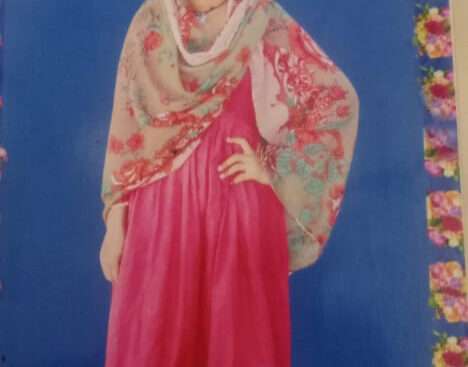It has been more than 15 harrowing days since Radha Bheel vanished—15 days of silence, fear, and heartbreak for a family who have nothing but a girl’s birth certificate, a fading memory, and unending tears to hold on to.
Radha, a 14-year-old child, is still missing. Her father, Panya Bheel, breaks down each time her name is spoken. “The police are not cooperating with us,” he says through choked sobs. “I am a very poor man; I don’t know what to do.” His eyes—red, tired, defeated—mirror the pain of a father left helpless in the face of power and apathy.
The anguish in the Bheel household is heavy. Radha was the youngest of six siblings—joyful, curious, and just beginning to understand the world. That world was brutally snatched away on April 15. According to the FIR lodged by Panya, she was abducted at gunpoint from their modest home by a fellow factory worker, 22-year-old Fahad Pathan, aided by his father Imtiaz and an unidentified accomplice.
“She was just a child,” Panya says, gripping the corner of his shirt with trembling fingers. “They took her… and I wonder every hour—is she even alive?”
Radha had been working alongside her family in a factory—laboring out of necessity, not choice. It was there that Fahad and his father also worked. Panya believes the girl was abducted, possibly taken to Husri village in Hyderabad, forced into marriage, and made to convert against her will.
Her birth certificate—produced by the family and seen by Voicepk—clearly shows she is just 14, far below the legal age of marriage under the Sindh Hindu Marriage Act, 2017. Yet, inexplicably, authorities have presented a nikah nama and a conversion certificate bearing her new name: Muskan.
“My sister is under 18,” Radha’s brother says angrily. “Nobody can marry her like this. They changed her name… How can that be allowed?”
The FIR invokes Sections 365-B and 34 of the Pakistan Penal Code, of kidnapping with the intent of forced marriage. Still, the pace of investigation feels glacial. Fahad Pathan remains at large. His father, Imtiaz, has been arrested—but even that feels cold comfort to the Bheels, who see no trace of their daughter.
And then, there is the deafening doubt. Sindh police, when questioned, suggest the marriage may have occurred with “mutual consent.” But how can a 14-year-old—by law and by conscience—consent to such a life-altering decision? Her absence in court has silenced the only voice that truly matters: her own.
Meanwhile, officials continue to debate legal definitions, evidentiary value, and circumstantial plausibility. But what of Radha’s life? Her childhood? Her dreams?
On April 28, Radha’s family, joined by local activists and members of the community, held a protest outside the Hoshri Mor Police Post. Their voices cracked with pain and fury as they demanded justice—not just for Radha, but for countless minority girls who vanished into the shadows under similar circumstances.
Chandan Malhi of the National Commission for Human Rights confirmed the NCHR is following the case and has contacted authorities, though no formal complaint has yet been received.
Jibran Nasir, prominent advocate and human rights defender called out the systemic flaws: “Conversion certificates are often used to obscure a child’s age. Courts may validate the marriage if the girl says she consented, but many later admit they were coerced.”
Nasir highlights the Sindh Child Marriage Restraint Act, which defines child marriage as child abuse—a definition not yet echoed by enough in power. “The law is there, but will the girl ever be brought to court to be heard?” he asks.
In truth, this is about far more than just legal technicalities. It is about a system that allows a 14-year-old girl to disappear, be renamed, married off, and be silenced—while her father begs at the doors of justice.
The world has forgotten Radha. But her family lives every moment in torment, waiting for a knock at the door, a phone call, a miracle.
Panya Bheel’s voice falters one more time. “Just bring my daughter back. Let me hold her hand. Let her speak for herself. Is that too much to ask?”
Fifteen days. And still no answers.
